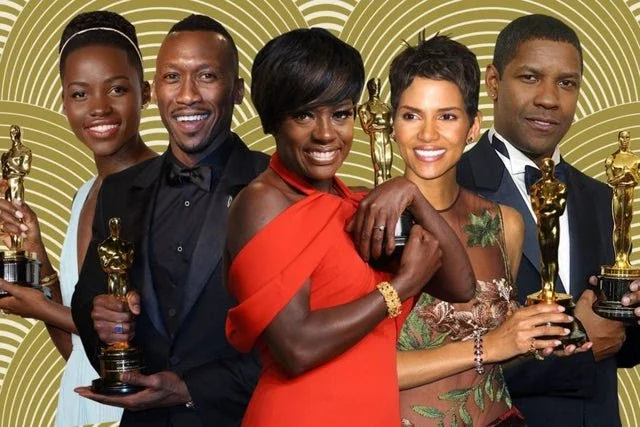Research shows Black award winners are rare.
HALLE BERRY (PHOTO BY JEFFREY MAYER/WIREIMAGE) JEFFREY MAYER/WIREIMAGE
For Black History Month, Brixton based digital marketing agency Passion Digital wanted to look into the lack of representation in various industries, stretching as far back as 1901 up to today. And what they found was the perhaps unsurprising fact that black winners make up an incredibly small percentage of winners.
Looking at the Oscars, they found that black winners make up only 2.35% of all winners since the awards began back in 1929. That is 74 out of 3,140 awards, and there are still 4 categories that have never seen a black winner. Those are Best Cinematography, Best Director, Best International Film, and Best Film Editing. Astonishingly, there has only ever been 1 black woman to win the Best Actress in a Leading Role award. The Oscars have seen much controversy surrounding the issue of diversity, in 2015 #OscarsSoWhite took over social media when all 20 nominees for the acting categories were white. It continued in 2016 when the same thing happened again.
But it’s not just the Oscars where this is the case. Passion Digital found that the Golden Globes - the hosts of which, the Hollywood Foreign Press Association, faced criticism in 2021 for the lack of black representation among its members, and was reported by the Los Angeles Times to have not had a new black member since Meher Tatna, its former president, in 2002 - had only seen 54 black winners. Again there are still categories to never have seen a black winner; Best Director of a Motion Picture, and Best Screenplay of a Motion Picture.
They also looked outside the world of TV and Film, at all the industries eligible for a Nobel Prize. 1.78% of all 954 winners have been black people. 12 of the 17 have been the Nobel Peace Prize, 4 were for Literature, and 1 for economics. No black person has ever won a Nobel Prize in any of the science categories - Physics, Medicine or Chemistry.
They concluded by saying this research to them shows why there is a need for diveristy and inclusion across all industries. “Everything starts with awareness and helping to make sure the black voices are heard and their achievements are recognised.”
The question remains though - why are these numbers so low? Film critic, and voting member of organisations including BAFTA and the Brits Ashanti Omkar says it’s a combination of things. “For starters, awards campaigns cost a lot of money and lobbying, but it all boils down to the expectations of voter pools, and what they deem as awards worthy. Voters see Eurocentric content as being the gold standard, and anything that is dissimilar to that, is scrutinised and often not even viewed, let alone voted on.” She goes on to say that getting a more diverse voter pool can help but we have a long way to go. “In the UK, things are changing, in small steps but positively. Being a smaller country with 15 percent people of the global majority, the UK has seen better campaigns to widen voter pools. But this has culminated in incremental changes thus far.”


